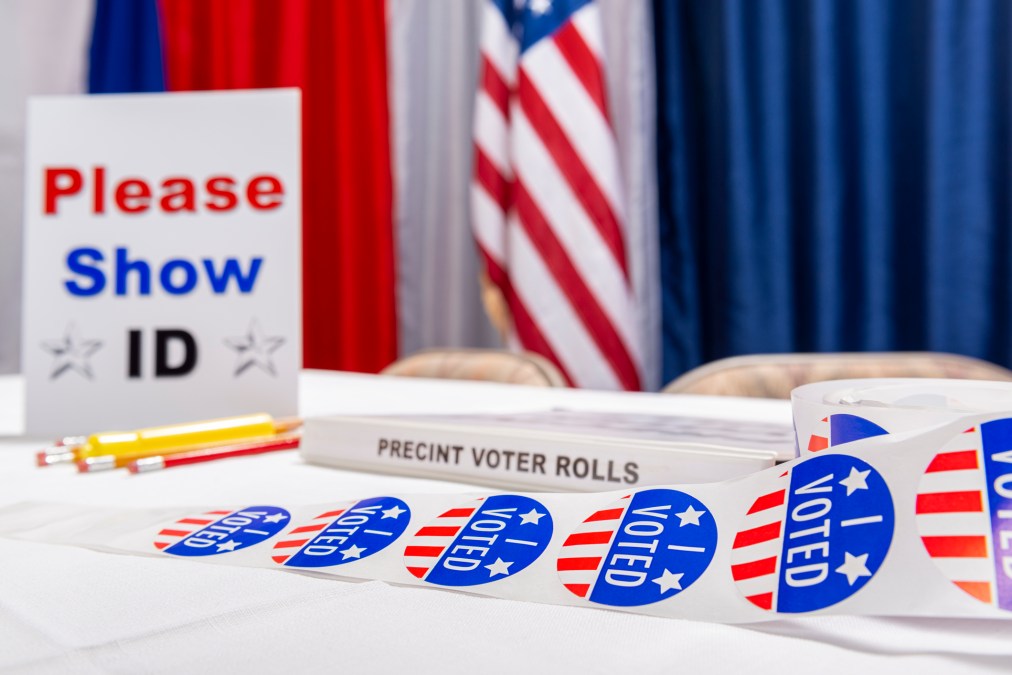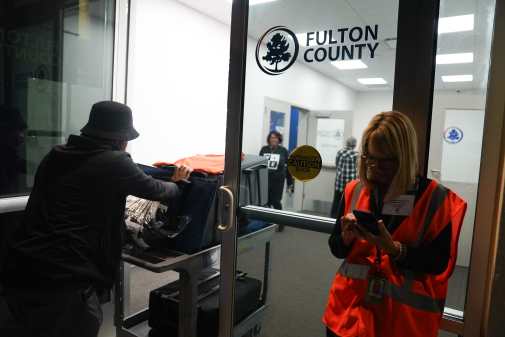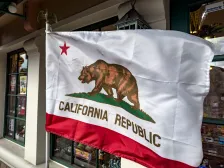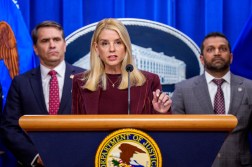Judge tosses citizenship provisions in Trump elections order

A federal court partially blocked a Trump administration executive order Thursday that seeks to impose requirements on states to use the White House’s definition of “documentary proof” of citizenship, inhibit mail voting and other election-related elements by threatening to withhold federal funding.
The order was subject to multiple lawsuits from Democratic Party organizations as well as civic groups like the League of United Latin American Citizens, the League of Women Voters of the United States, the National Association for the Advancement of Colored People and others.
In a three-page order issued in the U.S. District Court for the District of Columbia, Judge Colleen Kollar-Kotelly granted the parties partial relief from the order, blocking the Election Assistance Commission from altering federal voter registration forms to include a proof of citizenship section. That would have required voters to present one of several forms of identification — including REAL ID, a valid passport or state-based ID forms that specify citizenship status.
Kollar-Kotelly also struck down provisions challenged by Democrats to prevent federal agencies from denying or refusing to send federal voter registration forms to voters.
The Constitution explicitly empowers states — and, to a lesser extent, Congress — to set rules around elections, with no mention of a role for the executive branch. States also verify citizenship when residents get their driver’s license and other forms of ID.
Moreover, federal law already prohibits noncitizens from voting, and post-election audits across numerous states have found that the number of noncitizens registered to vote are often in the double digits, or at most several hundred out of hundreds of thousands or millions of registered voters. Of those noncitizens that are registered, a tiny fraction have actually cast a vote.
In her opinion, Kollar-Kotelly said the questions at hand were not about the wisdom behind the executive order, but strictly about the executive branch and the White House’s authority to set election rules under the Constitution.
“The many defendants in these consolidated cases — federal officers and agencies — say little about that question,” she wrote. “They have offered almost no defense of the President’s order on the merits. Instead, they argue that these suits have been brought by the wrong plaintiffs at the wrong time.”
When reached for comment, White House spokesperson Harrison Fields indicated that the administration will appeal the ruling.
“President Trump will keep fighting for election integrity, despite Democrat objections that reveal their disdain for commonsense safeguards like verifying citizenship,” Fields said in a statement. “Free and fair elections are the bedrock of our Constitutional Republic, and we’re confident in securing an ultimate victory in the courtroom.”
Kollar-Kotelly also expressed the belief that the plaintiffs “are substantially likely to prevail” in their case on the merits, at least with respect to the citizenship provisions.
“Congress is currently debating legislation that would [affect] many of the changes the President purports to order. And no statutory delegation of authority to the Executive Branch permits the President to short-circuit Congress’s deliberative process by executive order,” she wrote.
However, Kollar-Kotelly denied requests to block federal agencies from sharing federal data and seeking access to state-level databases on voters to cross-check citizenship. The court also declined requests to block federal officials from including absentee and mail-in ballots that arrive after Election Day, and a provision that would seek to condition EAC funding on making Election Day the final day to accept any form of ballots.
That provision, however, specifies that agencies can only do so in accordance with Title 52, a section of U.S. law that includes a passage specifying that “adoption of [EAC] guidelines and guidance [are] not required to receive payment” and that “nothing in this subpart may be construed to require a State to implement any of the voluntary voting system guidelines or any of the voluntary guidance adopted by the [EAC] with respect to any matter as a condition for receiving a requirements payment.”
Meanwhile, the plaintiffs in this case have argued that millions of eligible voters lack the forms of ID specified by the Trump administration’s order.
Kollar-Kotelly did not rule against the plaintiff’s requests on the merits, but rather felt they were not best positioned to legally challenge those provisions.
“On the present record, challenges to those provisions are premature or properly presented not by these plaintiffs but by the States themselves. In fact, many States are already bringing those challenges elsewhere,” she wrote.
In a joint statement Democratic leaders, including Senate Minority Leader Chuck Schumer, D-N.Y., House Minority Leader Hakeem Jeffries, D-N.Y., Democratic National Committee Chair Ken Martin, Democratic Governors Association Chair Laura Kelly and others praised the decision but said their fight over other provisions would continue.
“Our work is not over — we will continue fighting to block DOGE from accessing sensitive voter information and ensure states can freely run their own elections,” the group said.
Samantha Tarazi, chief operating officer and co-founder of Voting Rights Lab, argued that the White House order was not designed to surmount court challenges, but rather to intimidate states into complying with federal preferences and inject uncertainty into their prospects for federal funding.
“To President Trump, whether the executive order would survive legal scrutiny was beside the point,” Tarazi said in a statement. “The goal was to send a clear directive to his allies in the states — and in Congress — outlining precisely how the president wants them to change their laws, and they are already following his marching orders.“






